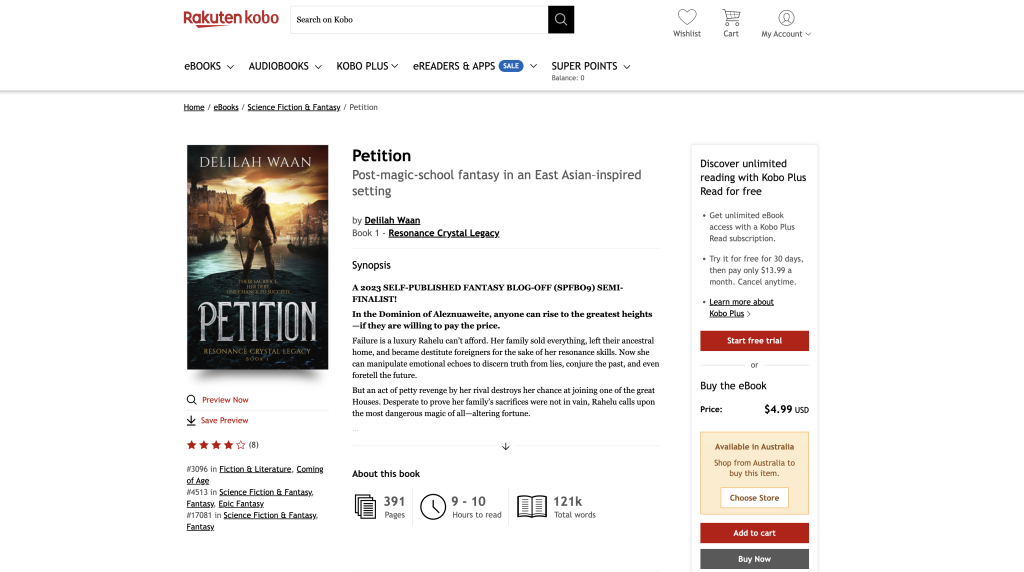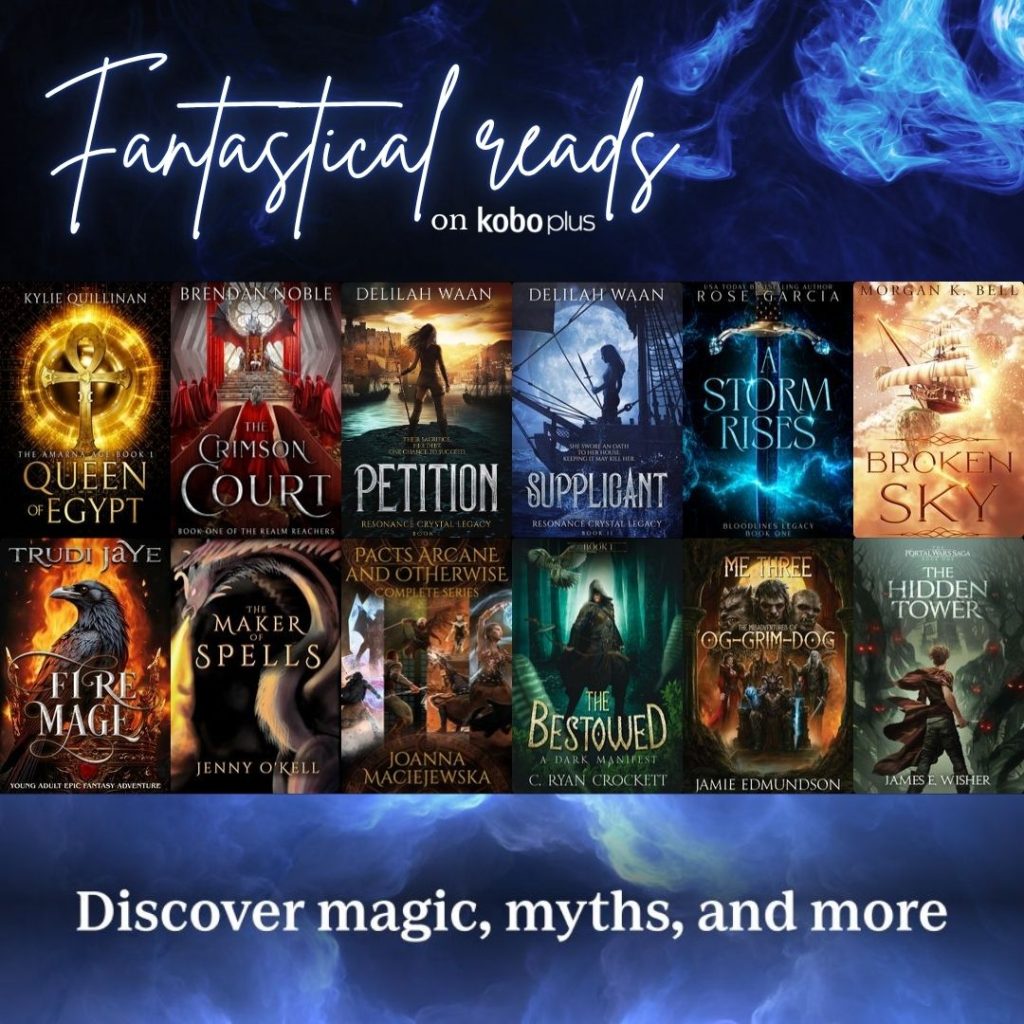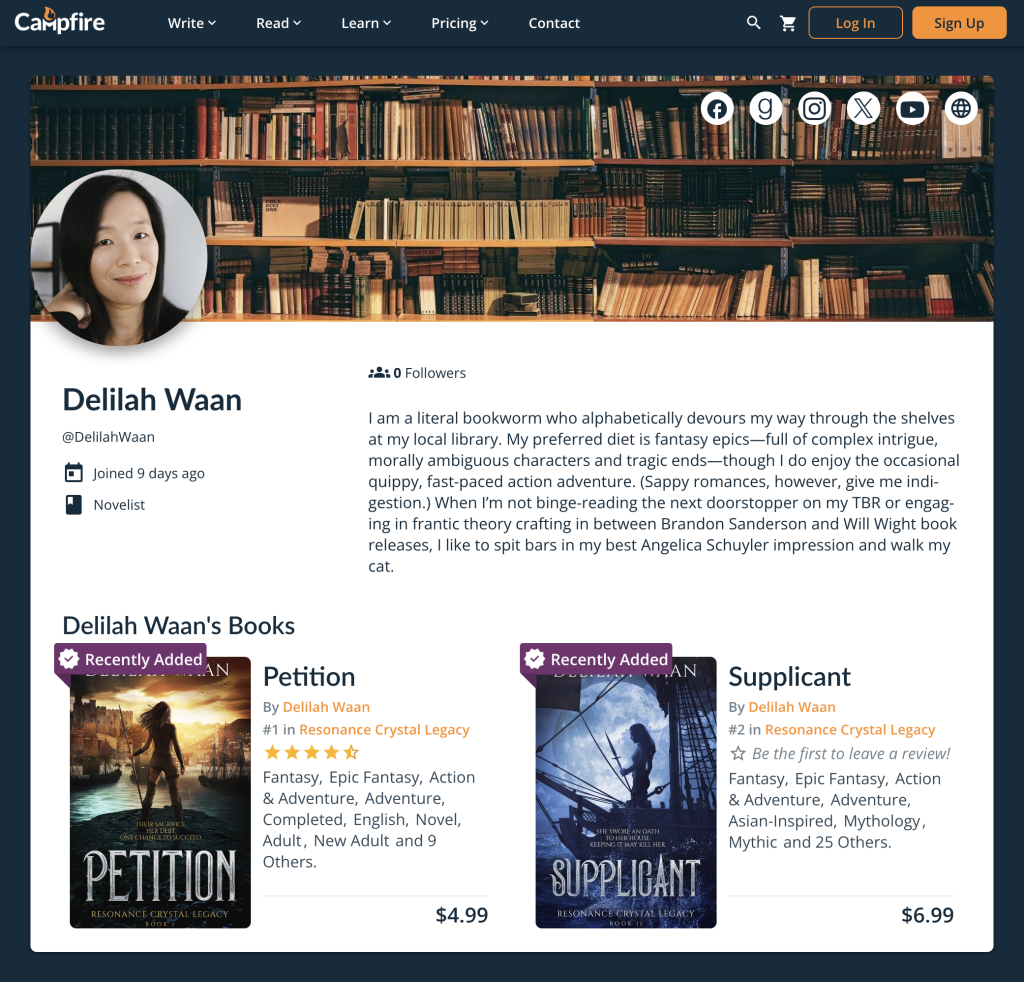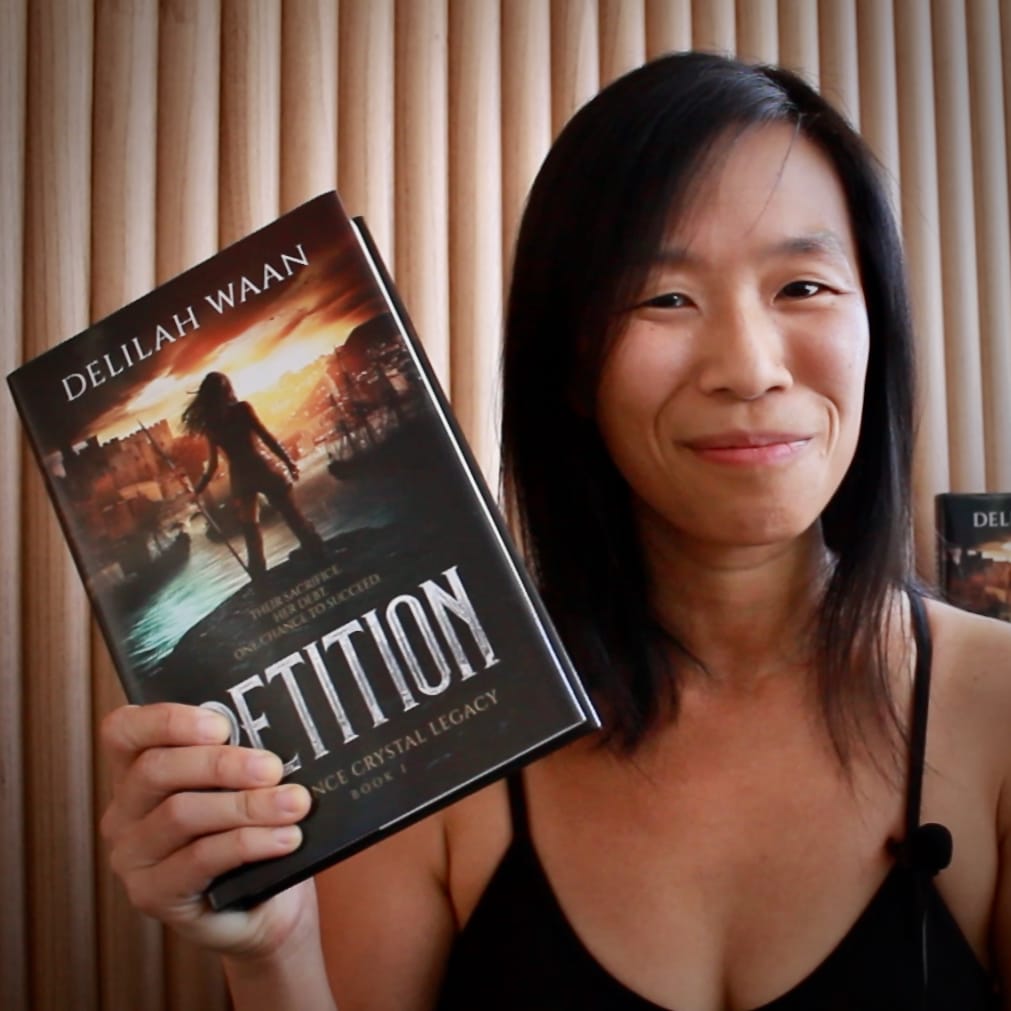
Why Kobo is still better than Amazon, despite its adoption of AI technologies
If you’re here because you found me after reading Engadget’s article, AI might undermine one of the better alternatives to the Kindle, hello and welcome! Here’s some more context behind the quotes I provided to the article.
—Delilah.
On 29 May 2025, Kobo updated its Terms of Service to include a new section about the use of AI technologies.
This change came completely out of the blue. There was no consultation, no detail, and very little thought given to stakeholder management and communications strategy.
Eventually, we got some answers. Here’s a video where I break down everything we know about Kobo’s AI technologies:
The TL;DR summary
Kobo have not, are not, and have committed to never training any large language models (LLMs) using the books published on its platform.
Most of the ways they are using/plan to make use of AI technologies (which is a broad umbrella term that encompasses the problematic stuff like generative AI) are sensible and ethical.
They ARE going to be testing a beta “recaps” feature on the Kobo App, which is reader-initiated and DOES utilize a LLM.
They are NOT answering any of my questions on where they got this LLM from and whether it has been trained on any of the stolen datasets, like LibGen which has my books in it. That’s corporate for “there is no good way to answer”, which probably means that LLM is ethically dubious. If it wasn’t, they would’ve answered in specifics, like they did with my other questions.
I don’t think a generative AI recaps feature is going to achieve what they think it’s going to achieve, and I think there’s a great deal of potential for it to do harm. But at least they’re not shoving it in our faces everywhere (*cough* Storygraph and Amazon customer review summaries, I’m looking at you *cough*) so if you don’t want any part of it, just don’t use it.
Per the Engadget article, Kobo says “it has not begun testing” this feature yet.
Given the backlash, I don’t know if they will continue with their original plans. Correspondence that I’ve had with Tara Cremlin, the Director of Kobo Writing Life, indicates that all of our feedback has been directly forwarded to the development team/s.
I can only hope that they’ll do the sensible thing and give our concerns serious consideration.
Overall, Kobo’s intentions are benign.
They are trying to do right by authors and readers. They have been actively listening and engaging with our concerns and I am reasonably confident that, so long as we don’t give up and we continue to engage with them, they’ll continue to listen and engage with us.
So I’m leaving my books up on Kobo and I will continue to encourage readers to move over to Kobo because as far as Amazon alternatives go, Kobo is—hands down—still the best.
Seven reasons why readers should switch from Amazon to Kobo
- You can download the ebooks you buy.
- You can also know ahead of time whether the ebooks you buy are DRM-free. (Scroll down to the bottom of the page, and look under the subheading “eBook Details”.)
- Their Kobo Plus subscription program is more affordable for readers ($7.99 USD/month vs. Kindle Unlimited’s $11.99 USD/month) and has plans that include audiobooks.
- Kobo Plus also doesn’t have the draconian exclusivity requirements that Kindle Unlimited imposes—which is way more reader- and author-friendly.
- Kobo has a range of e-readers in addition to their Kobo App.
- Kobo Plus pays authors by minutes read instead of pages read, which is less vulnerable to AI grifter bot farm exploitation.
- Kobo’s royalties are better and fairer. They pay 70% royalties above a floor of $2.99 USD, with no ceiling and no download fees. Amazon, on the other hand, only pays 70% royalties if ebooks are priced between $2.99 USD and $9.99 USD, and deducts download fees for file size (in 2025, for crying out loud).
If you’ve never checked out Kobo before, this June 2025 feature shines a spotlight on some of the indie sci-fi/fantasy books on the platform.

Other alternatives to Amazon
For trad-pubbed books, it’s best to stick with Kobo, but if you enjoy reading indie, here are two newcomers to the party worth checking out.
Itch.io
Books are relatively new offerings on this platform, but they have a couple of very cool and unique features.
1. Bundles. I don’t just mean bundling ebooks in a series (Google Play offers those too), I mean authors getting together and bundling their ebooks in one big awesome deal for readers—like this Pride Book Fair Fantasy Bundle organized by Claudie Arsenault for Pride Month.
2. Pay what you want pricing. This is pretty cool! It’s a nice way for authors to offer their writing to readers that allows readers to pay what they can afford/think it’s worth.
My books aren’t there right now, but I hope to have them up later this year, once I clear a few things off my plate.
Campfire
Campfire’s like…if you took Scrivener and World Anvil and mashed them together with parts of Royal Road, but wrapped it in a pretty slick UI that improves on the Amazon browsing and reading experience, and then—on top of that—decided to pay authors 80% royalties.
That’s 10% more than all the major retailers.
No ads. (Because Campfire’s main source of revenue comes from its writing software.)
No venture capitalist backing. (Because they don’t need it.)
No gen AI shit. (Because there’s no investor pressure to jump on the latest hype train.)
Just a small team of humans—many of whom are writers themselves—working on building a good platform for people who love books.
You can now get my books on Campfire because Jason, the CEO, reached out via the contact form on my website, replied to the barrage of questions I emailed back, and got me set up.

Guys, I am real excited about this.
One super unique thing Campfire allows authors to do is to publish “extras” that unlock at certain points in the book.
For example, I’ve been writing and publishing chapter-by-chapter annotations on my website. It’s stuff that’s not necessary to understanding the story, but it’s part reflection for me as I work on the next book, part me paying it forward to other writers, and part stuff that I think a subset of my readers might find interesting. Right now, the reading experience for my annotations is pretty clunky. Anyone who wants to read them has to: a) know that the annotations exist, and b) remember to navigate to my website after reading the relevant chapter/s.
Once I finish posting the last annotation for Petition to my website, I’ll also be publishing them on Campfire as extras. Those annotations will be free and non-exclusive to Campfire, and will always remain on my website, so you can read them no matter where you got my book and without signing up for another platform. It will be more seamless on Campfire because you’ll be able to unlock and read them (or not, if you’d rather not) as you experience the book.
By the way, Jason’s not paying me to say any of this.
He simply took the initiative to reach out, respectfully addressed my questions and concerns when I wrote back, and generally treated me like a human and a valued business partner, instead of a resource.
Amazon and other platforms, take note.
You CAN make a difference with your reading choices
At the risk of sounding like I’m giving you the hard sell, if you’re a Kindle reader and you’re a fan of Amazon’s Kindle Unlimited (KU) program, I beg you to please please please please please give Kobo Plus a shot.
A lot of books are exclusive to KU, I know, but that’s because authors feel incredible pressure to put our books in KU because many believe there aren’t enough readers anywhere else, and since Amazon mandates exclusivity, readers who go elsewhere have less choice, so then most readers end up going for KU because most of the authors and books are in KU, etc etc etc ad infinitum.
If we ever wanna break this cycle, we gotta start somewhere.
If you can, where you can, please consider buying direct from the author or from Kobo, or Campfire, or one of the many other retailers out there, whenever you’re about to grab your next read. Just one little shift in your book buying habits can change an author’s life.
It might not feel like you’re doing much, but I promise you: as an author, I cheer and do a little victory dance every time a reader decides to get my book/s from somewhere other than Amazon.
Because that’s change in action.

Delilah Waan is terribly vocal about the need for Amazon alternatives.
Her books are available direct through her website, and most places books are sold, including Kobo, Campfire, Smashwords, Google Play, Apple Books, and yes, Amazon.
You can also request them through your local library! Paperback and hardcover copies are available via Ingram, and digital formats are available through e-lending services such as OverDrive and Hoopla.